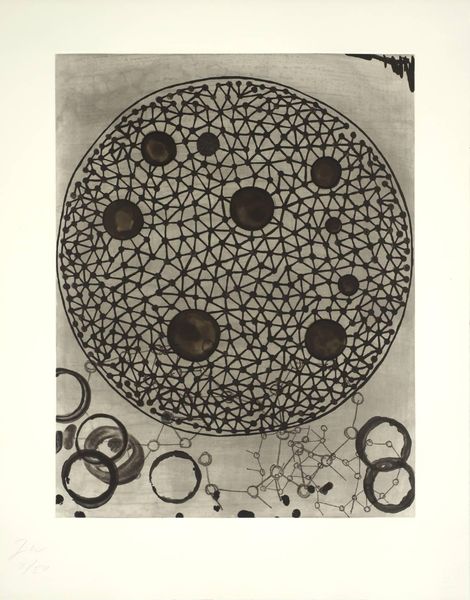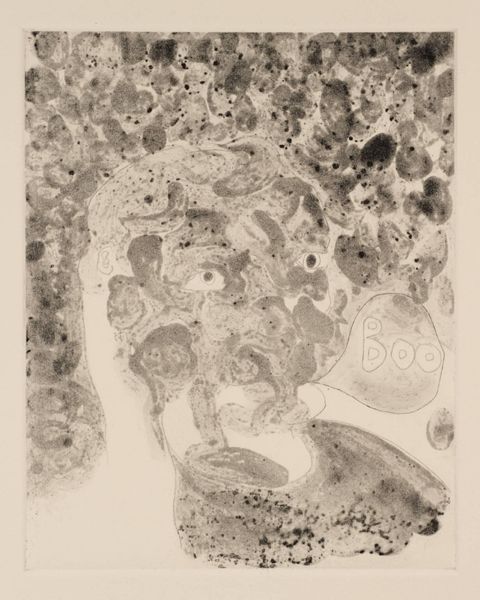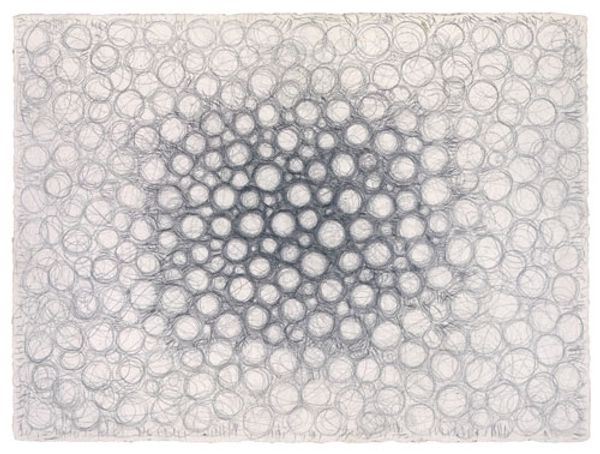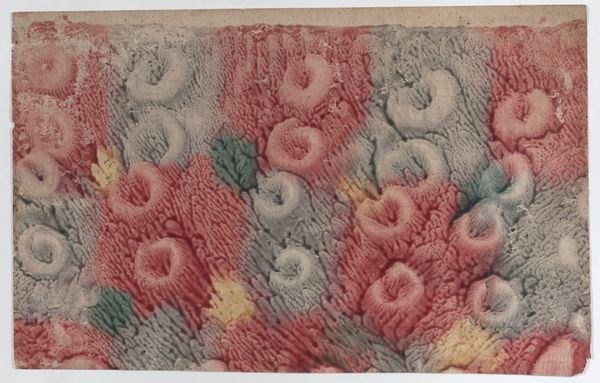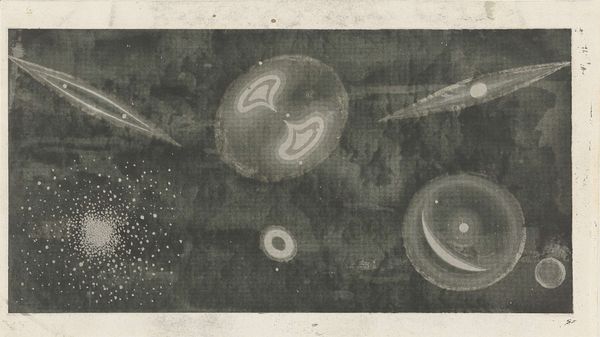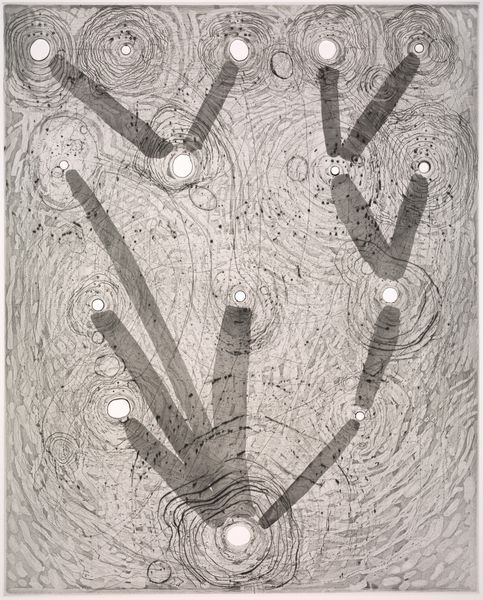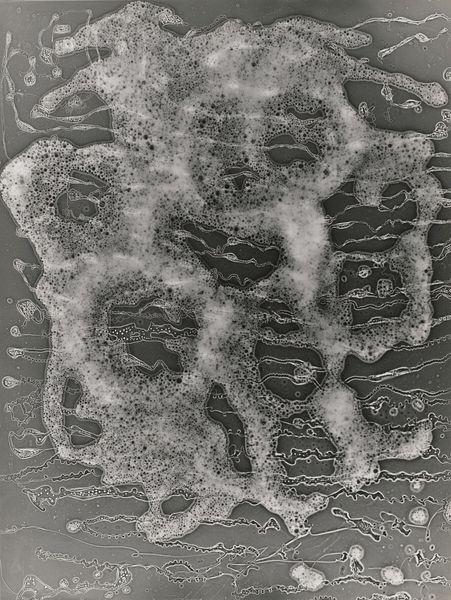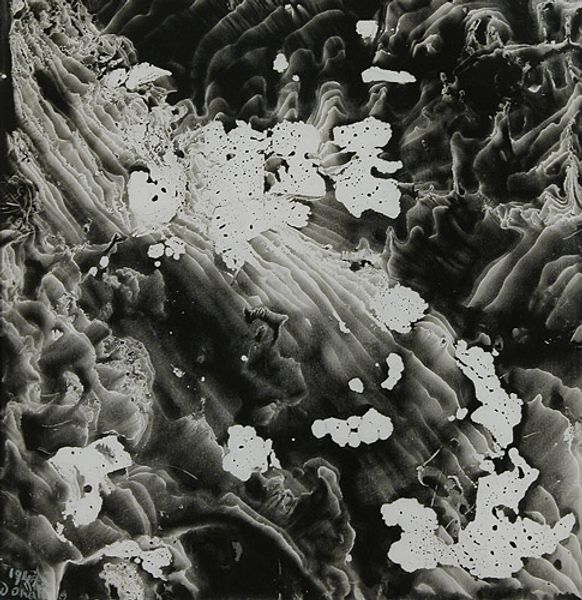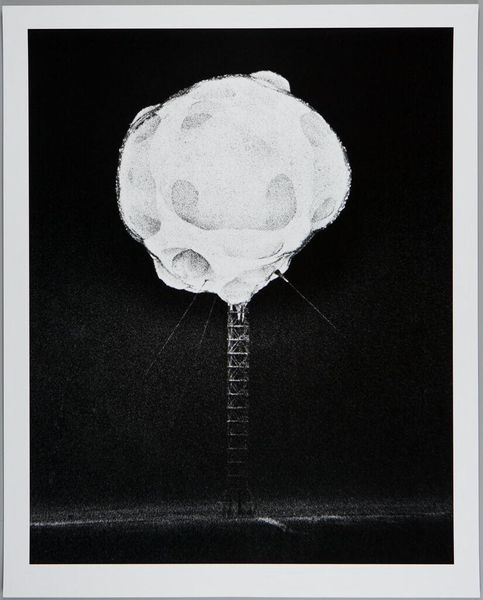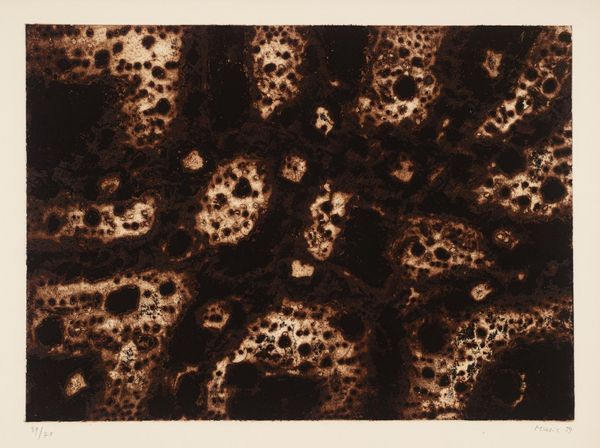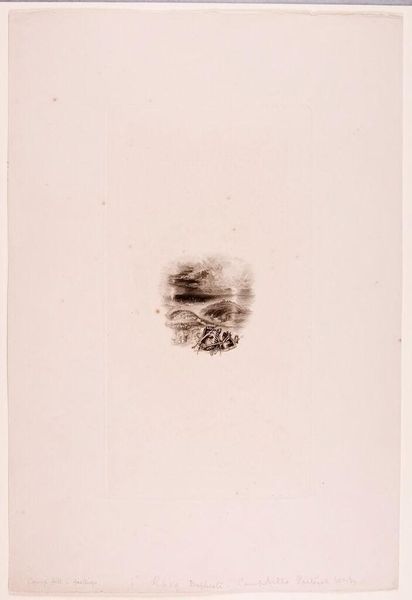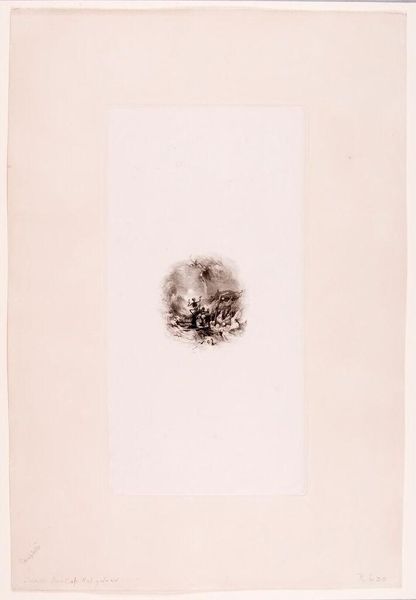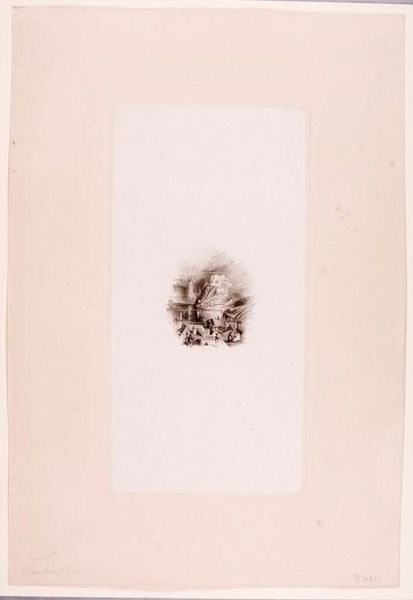
drawing, graphite
#
pencil drawn
#
drawing
#
pencil drawing
#
geometric
#
abstraction
#
pop-art
#
graphite
Dimensions: sheet: 104.78 × 75.25 cm (41 1/4 × 29 5/8 in.)
Copyright: National Gallery of Art: CC0 1.0
Curator: Here we have James Rosenquist's "Circles of Confusion" from 1965, a drawing executed in graphite. What are your initial thoughts? Editor: It's surprisingly serene, given its potentially critical subject matter. The hazy background makes the repeated GE logos feel almost dreamlike. What's the backstory here? Curator: Rosenquist, a key figure in Pop Art, was very interested in how mass media and consumer culture shaped perception. This piece really captures his fascination with how ubiquitous branding seeps into our collective consciousness. Editor: Yes, the very medium speaks to that—graphite, the material of commercial art and design. It blurs the boundaries between high art and advertisement. And what's with "Circles of Confusion" as a title? Curator: The title likely points to the overwhelming nature of consumerism. By repeating the GE logo – a symbol of American industry – Rosenquist may have been highlighting the dizzying effect of corporate messaging. Editor: And to produce this soft effect by hand, a laborious process, feels significant. It's not simply appropriating a readymade image; he's actively recreating it, imbuing it with his own labor. Curator: Absolutely. By painstakingly drawing these logos, Rosenquist directs our attention to the processes by which we ascribe meaning to everyday objects, specifically thinking about the visual language surrounding General Electric, and its cultural role during this moment in the 1960s. Editor: It also resonates with anxieties about corporate influence, which were growing increasingly widespread during that time period. It suggests a sense of corporate omnipresence. Curator: It is a striking depiction. And I wonder what viewers thought of this piece when they were faced with this image of commercial iconograpy back in the 1960s. Editor: "Circles of Confusion" really makes me consider the enduring power structures shaping art, industry, and our individual roles. A fascinating commentary to reflect on today.
Comments
No comments
Be the first to comment and join the conversation on the ultimate creative platform.
